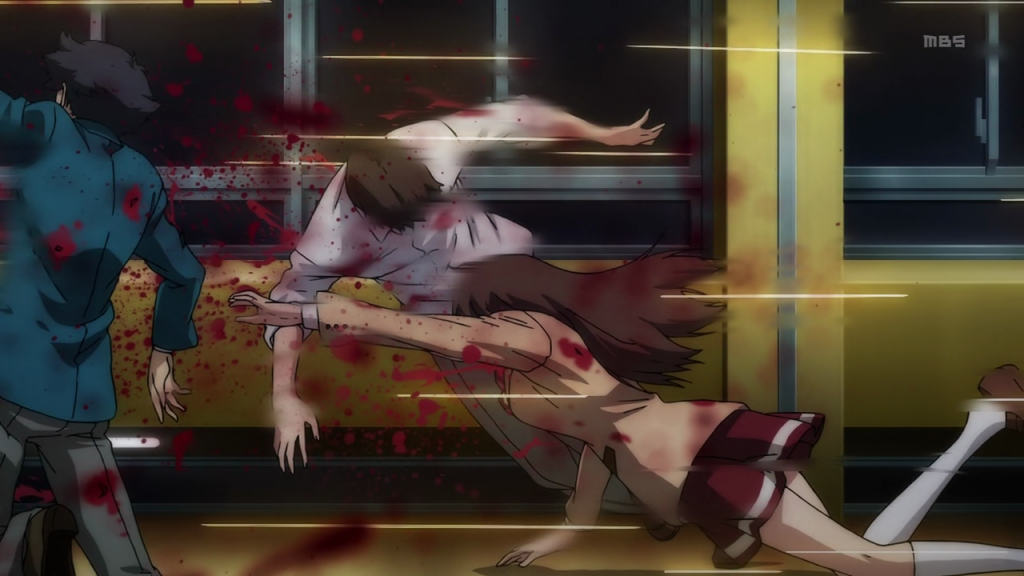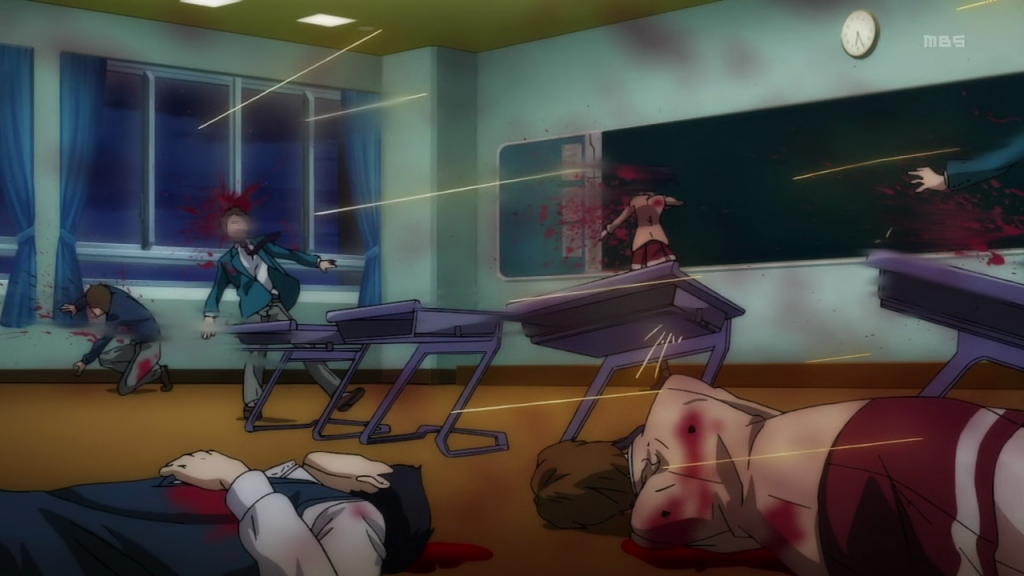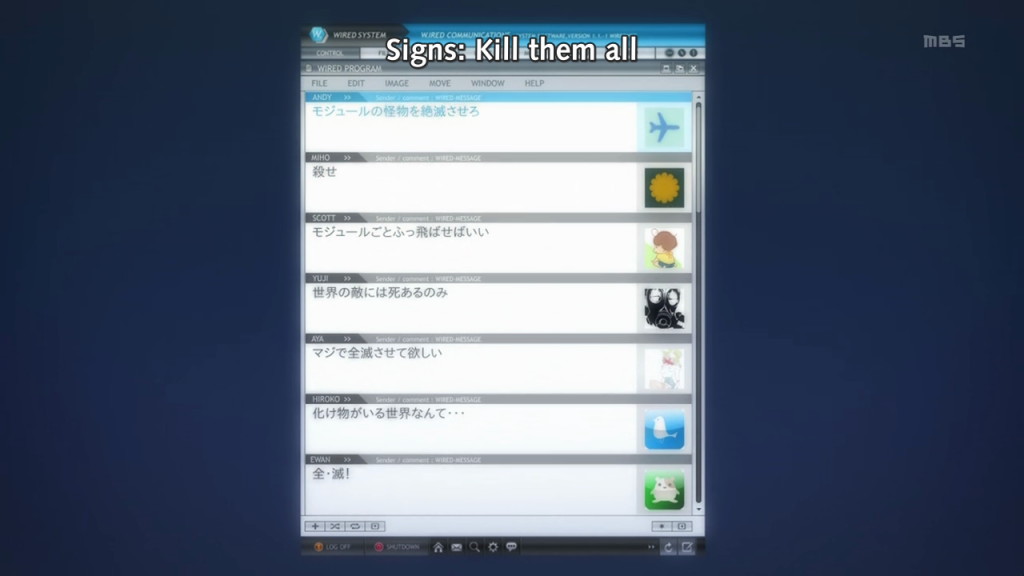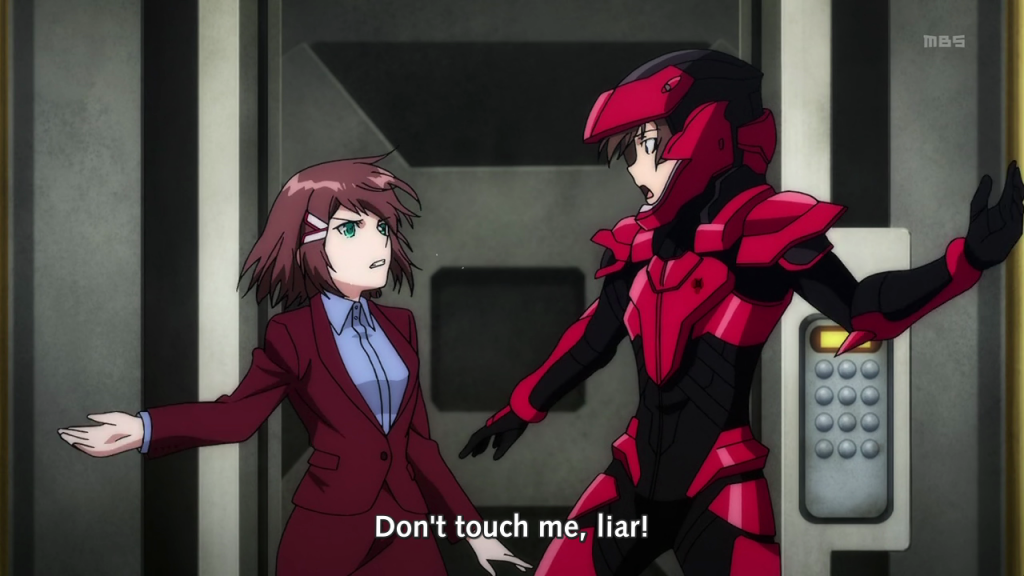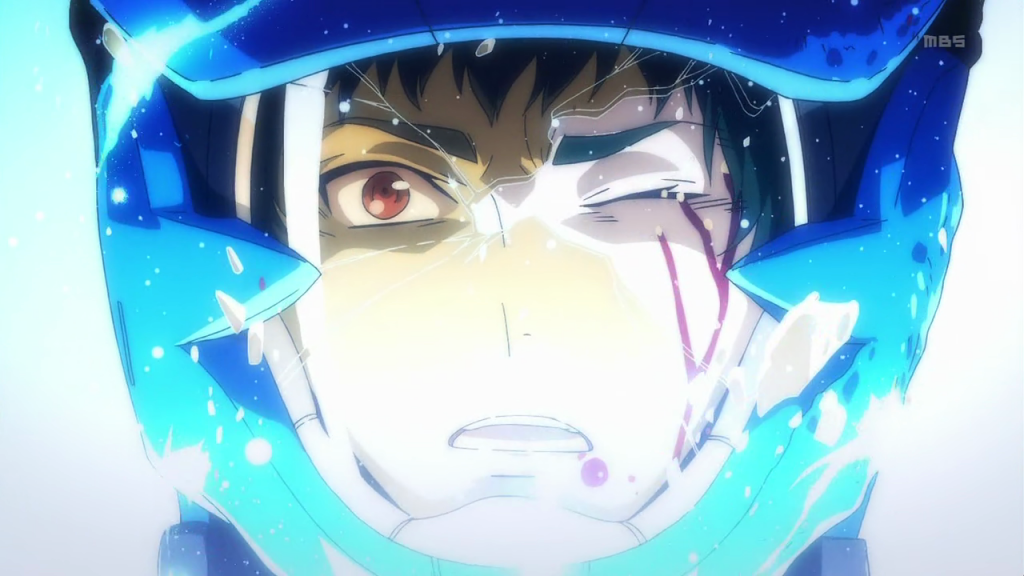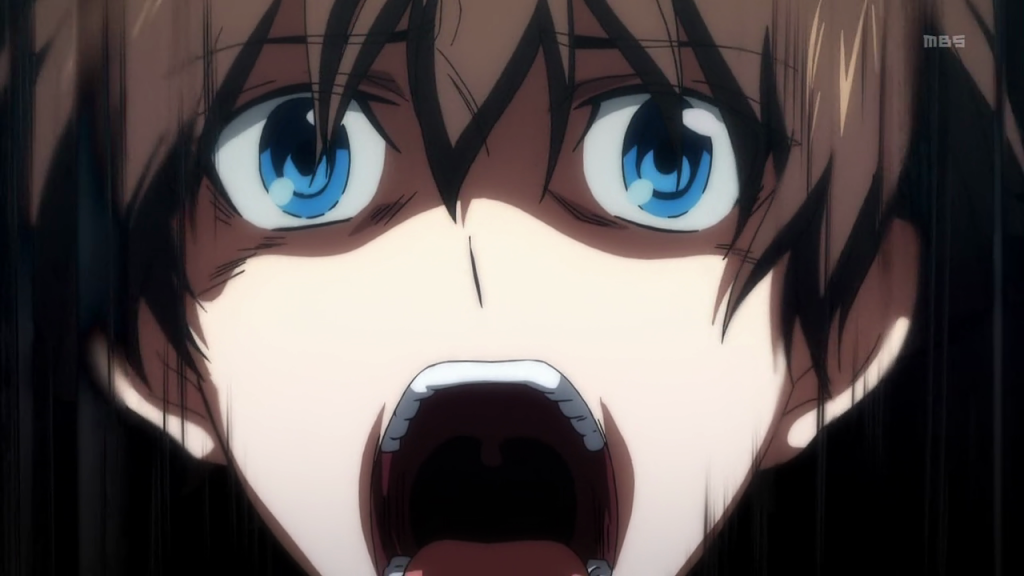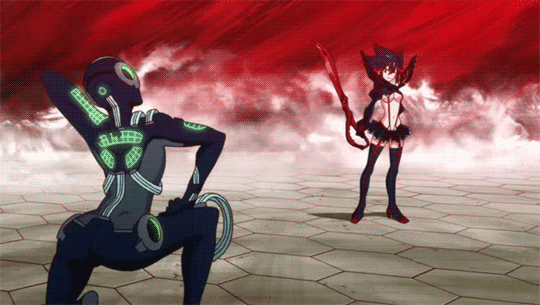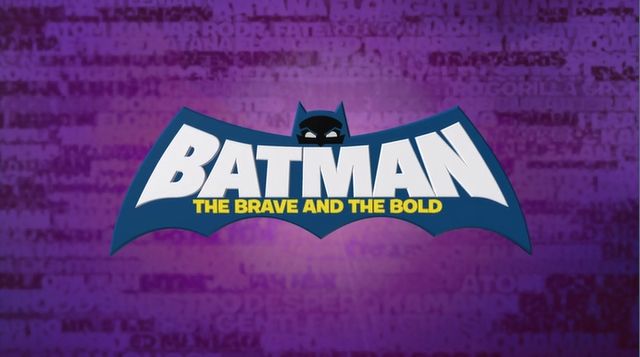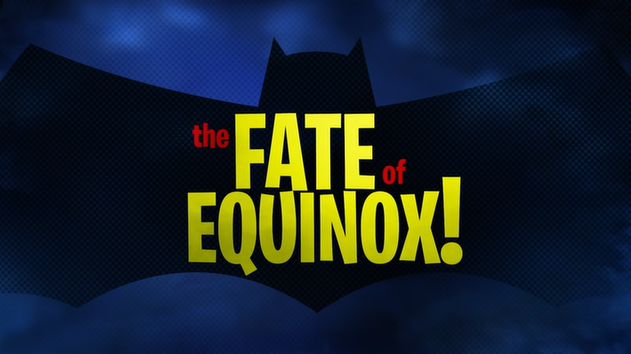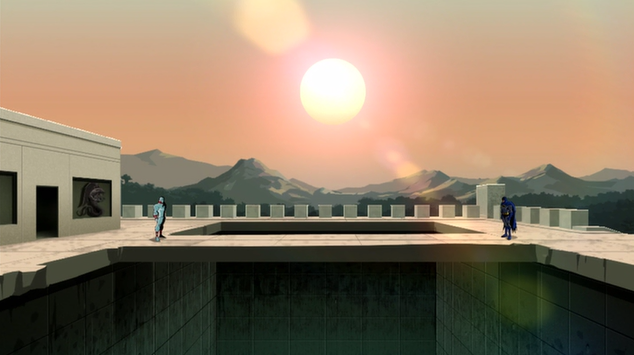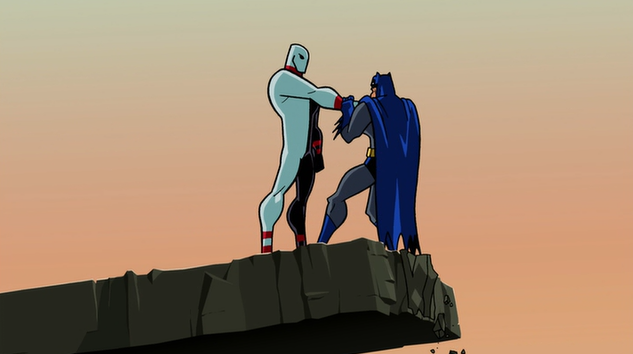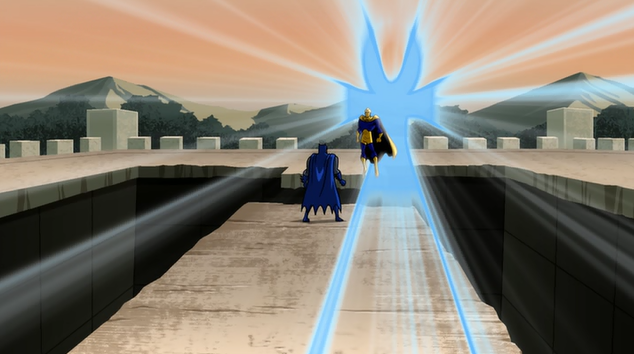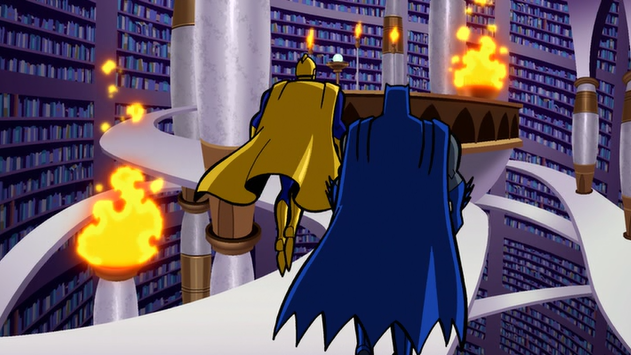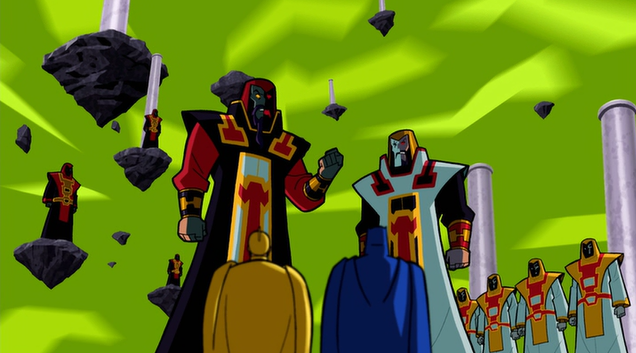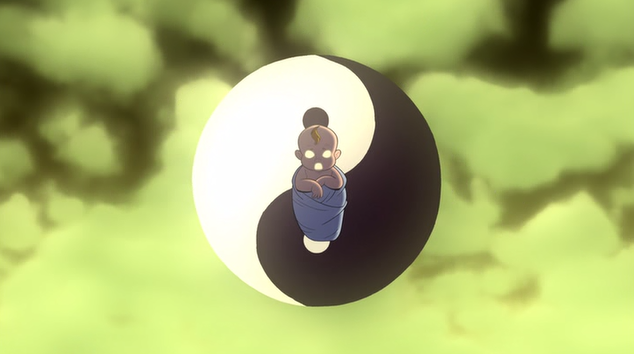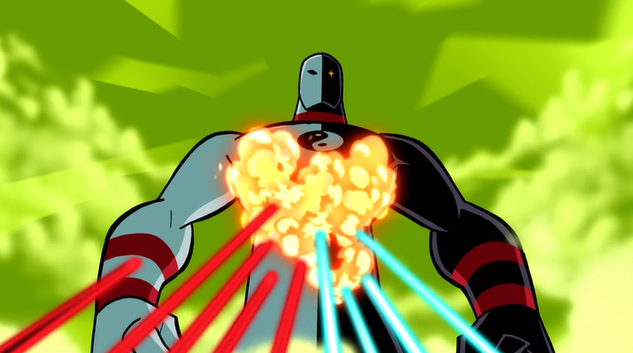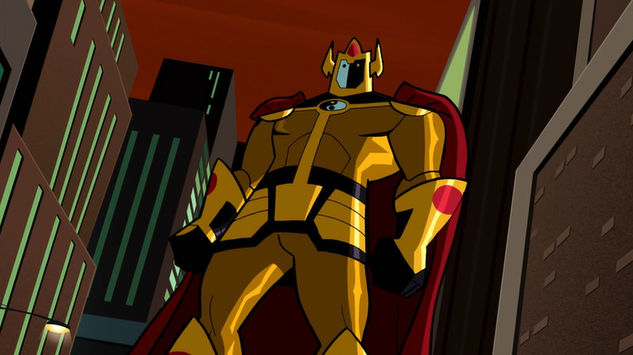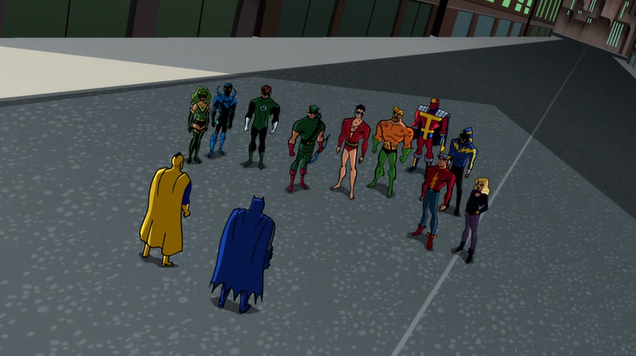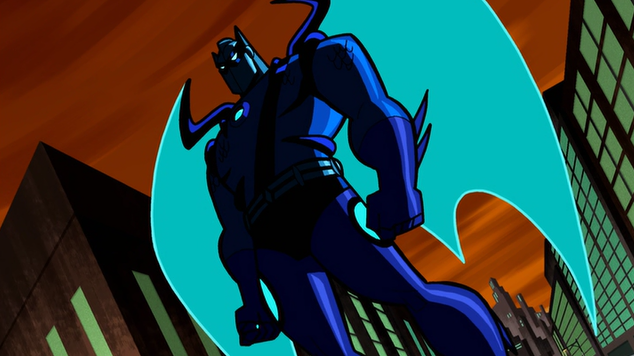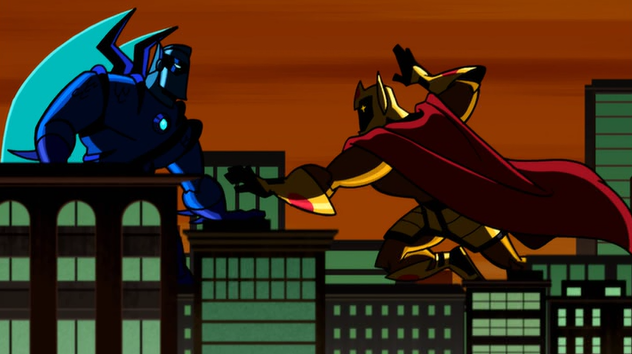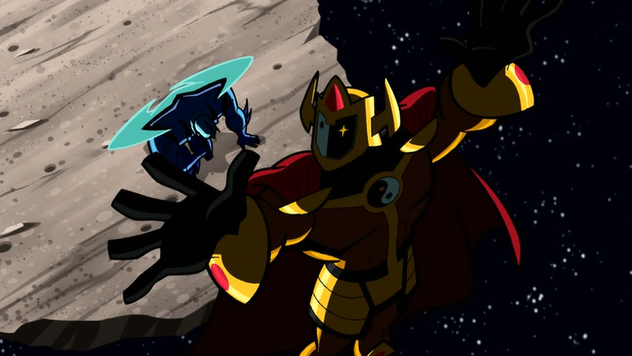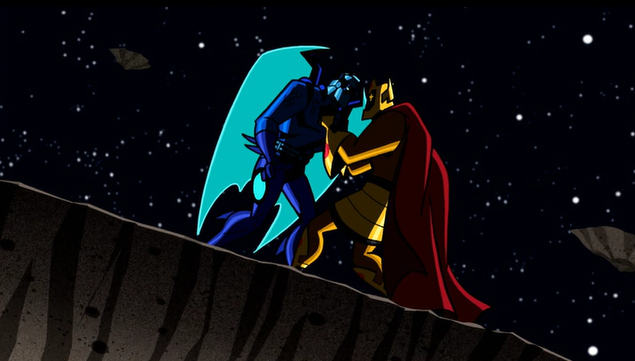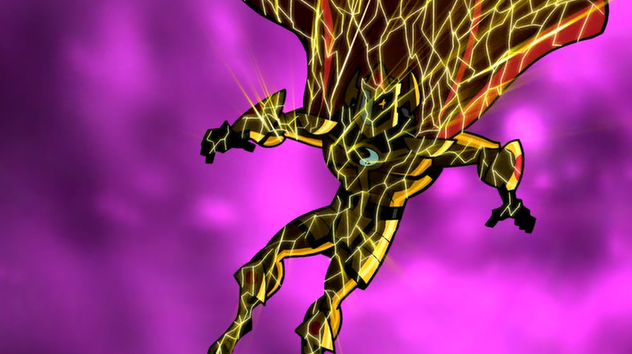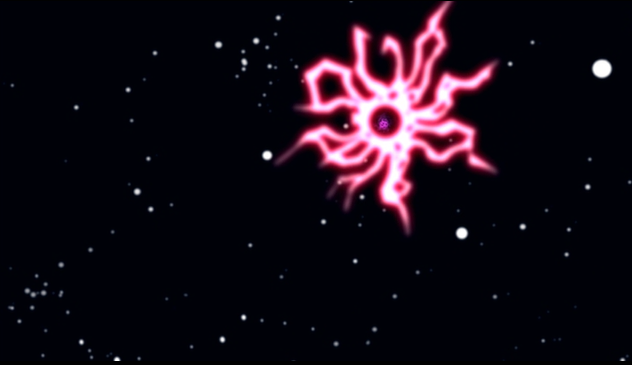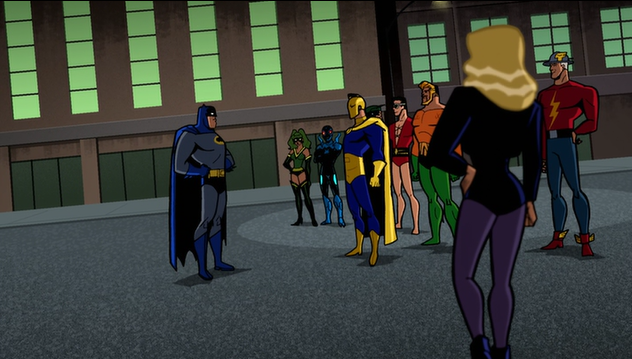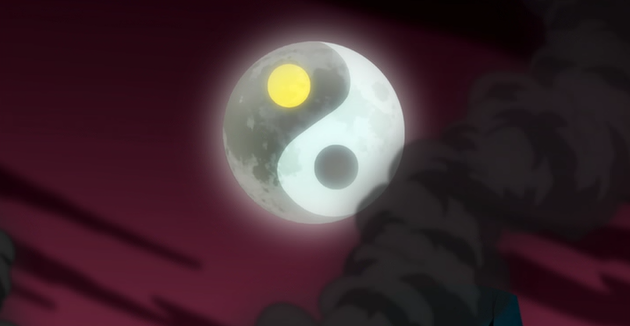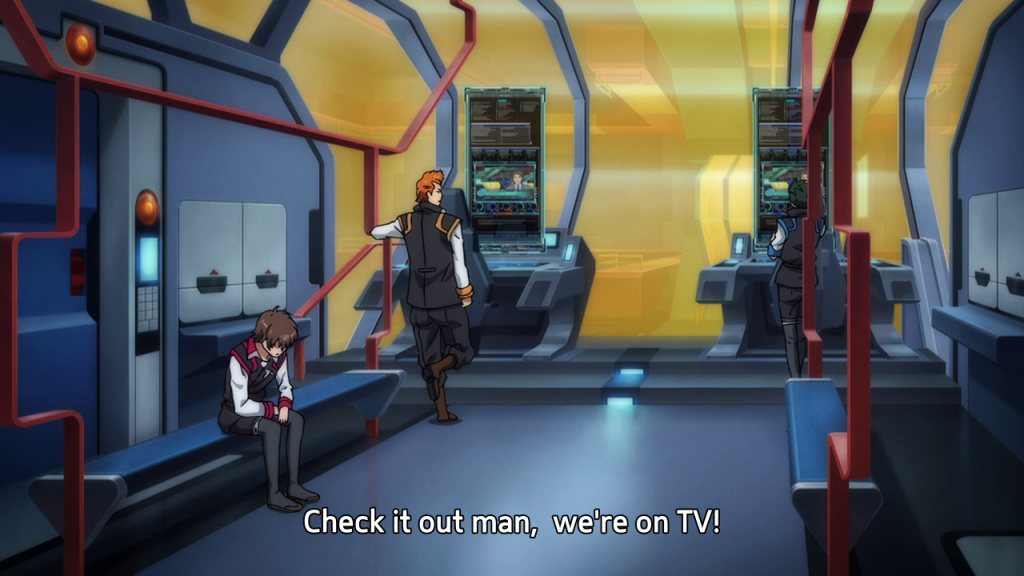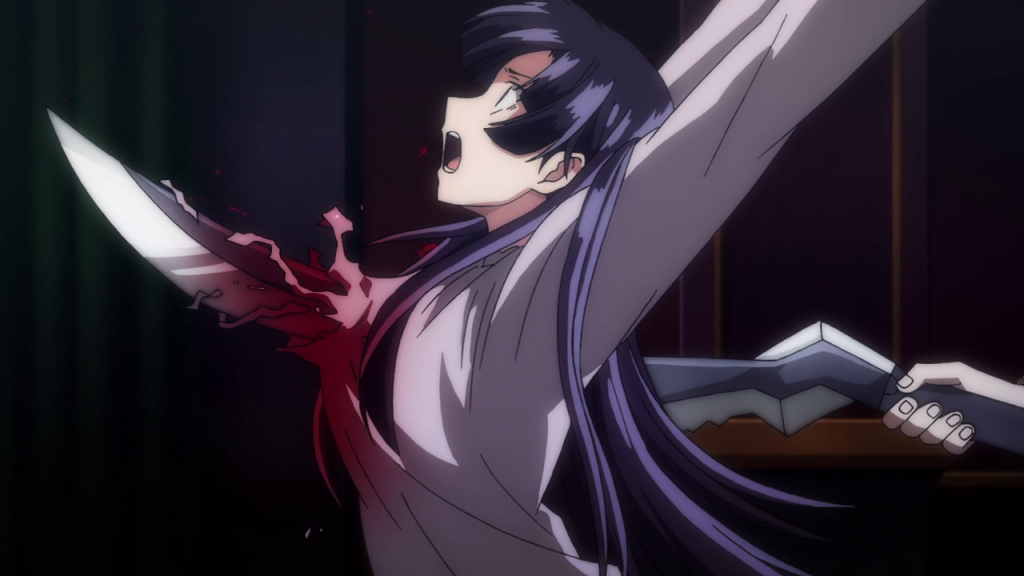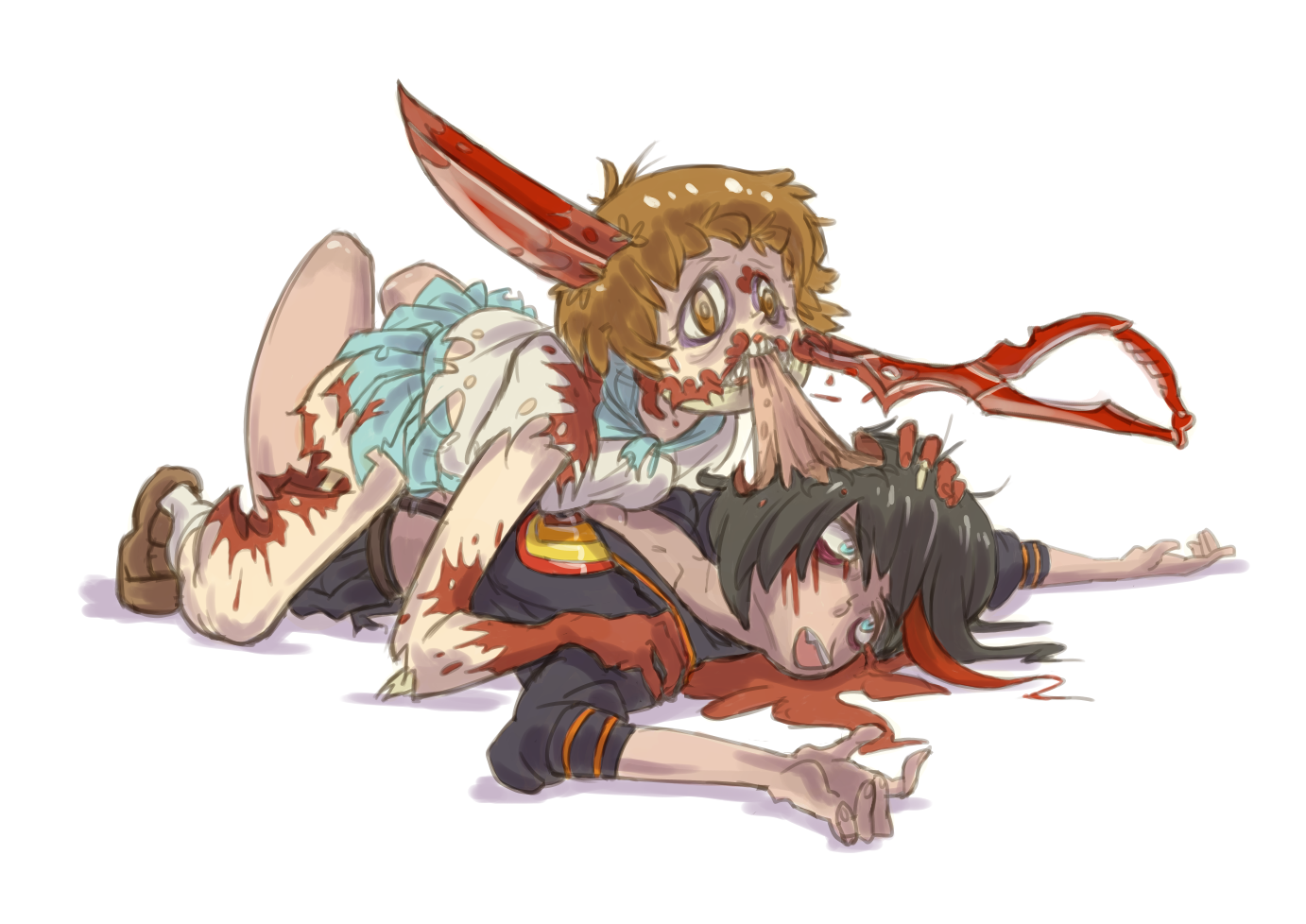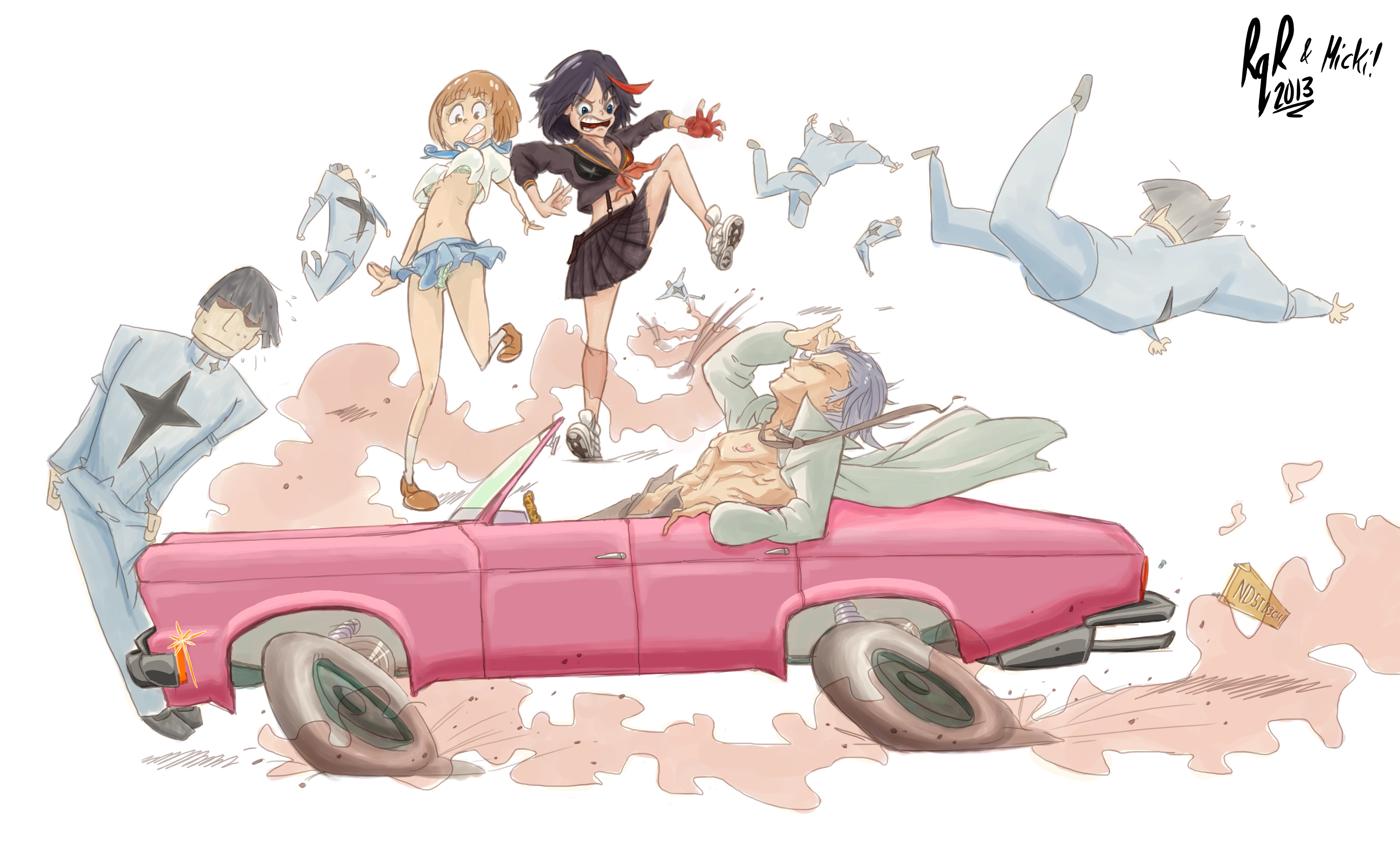12.08

All this picture is missing is "Ave Satani" playing over it
So on one side of the coin, we have Kurapika, who is basically the main character of this particular story arc. In that case, what exactly is his character arc? Well, at the start of the series we learned that he was a man out for blood on those who had wronged him. Aside from that, he was a pretty calm-natured dude. He was thoroughly stubborn in his viewpoints and rather naïve at times (not as much as Gon, of course, but he was still young, nonetheless), but otherwise he was a real stand-up, straight-forward fellow. A lot of this, as we learn, was mostly brought out when he was actually with Gon, Leorio, and Killua. Once they go their separate ways, though, it’s goodbye nice and cheery blonde kid and back to what I assume Kurapika was like before he met Gon: a bitter sour-pus, hell-bent on vengeance. Starting from the flash-back of Kurapika’s training, we realize that Togashi has given him a primary character-flaw to work out. In one word, it’s obsession. He is obsessed with his revenge on the Phantom Troupe so much so that I don’t really believe he stopped to think about what he would do when he found them. Togashi really goes out of his way to use all sorts of symbolism to drive this point home. For one thing, when Kurapika finally develops his own Nen ability, which is reflective of its own user in some way, his master asks him why he chose to conjure up chains, to which Kurapika answers that he wants to bind the Phantom Troupe, as if they were a pack of chaotic beasts (which may even be putting things lightly). Hell, Kurapika even has an attack named Chain Jail, if that wasn’t made obvious enough. It’s clear that his ability is the raw, physical materialization of his greatest desire.

Incidentally, it's also pretty good for shutting up annoying back-seat drivers
Of just as much importance is how Kurapika even attained the power to fight on even terms with a group of individuals who, by all means, SHOULD be leagues above his level. Well, rather than wanting to draw things out for himself (as well as the audience) with a few boring training-arcs, Kurapika instead exploited another flaw of his, which is strikingly surprising for such a calm character. He is rather impatient. At the end of the day, Kurapika is a rash, young guy, and he is driven far too much by emotion. So exploiting some of his own unique abilities, as well as the principles of Nen, he realizes that he can increase his power proportionally to the degree of restriction he places on himself and the use of his ability. He sets the condition that his power can only ever be used on members of the Phantom Troupe, and that if he were to try and break this condition, the cost would be his own life. I trust I don’t need to explain all of the shit that can go wrong with such a bold (and idiotic) condition if anyone were to find out about this (Killua even scolds him for so much as telling his own friends about it later on). That also sort of indicates, when you stop to think about it, that Kurapika was fully prepared to die from the get-go. Having such a plan would crush his abilities as a Hunter in the future, which by all means indicates that he wasn’t planning that far ahead. So, yeah, the kid’s kind of wreck-less in that way, isn’t he?
And touching back on that one element of comradery, how exactly does it relate to Kurapika’s character? Well, the whole point of this arc is getting Kurapika to understand the importance of the connections that he makes with other people. I once mentioned Melody, a bit earlier, saying that she was the only other important character among the bodyguards of the Nostrade family. What I mean is that she is essentially 90% of the freaking reason that Kurapika is still alive by the end of this arc. Melody is very much Kurapika’s calming agent. Her ability is even to use music to manipulate her surroundings. In this case she can play music to sooth the soul, which is precisely what she does during Kurapika’s first sighting of the Phantom Troupe. Had she not intervened, Kurapika would have darted straight for Uvogin without a plan and gotten his ass ambushed.
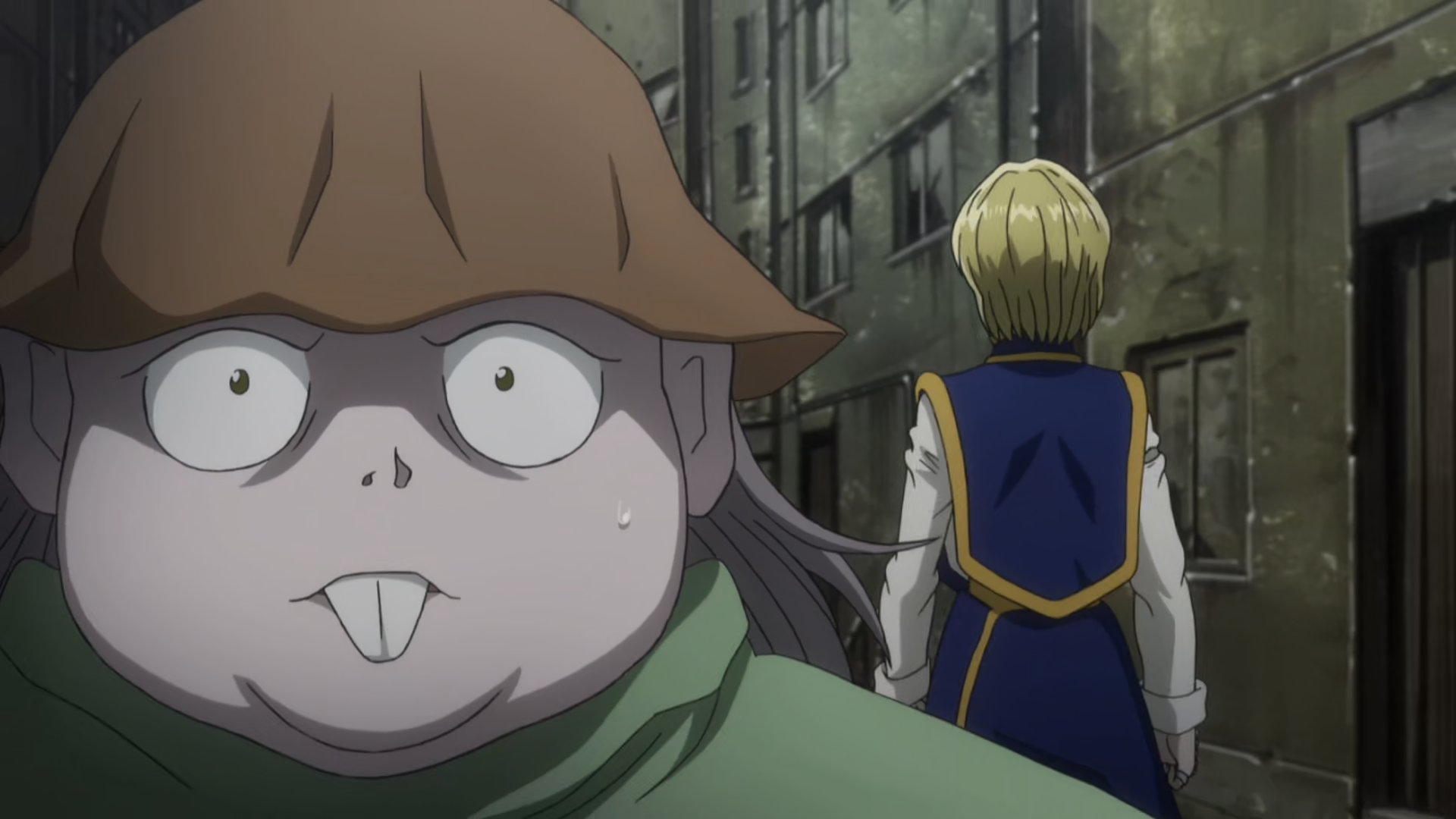
Also, Kurapika may or may not have just been distraught upon finally coming to this conclusion: "Wait! That's a chick!?"
Furthermore, Kurapika gets the assistance of his old friends later on in the arc. What I like about this dynamic is that, while most other writers would try to have Kurapika’s friends steer him away from the dark path that he is going down, over here the characters have clearly read enough fiction (I would assume) to know that shit like that usually only makes things even worse, despite best intentions. Rather, they go in with an attitude of “well, if you’re really going to do this, then we might as well make sure that you do it right.” I think Togashi handles this element of characterization pretty well. Kurapika is initially reluctant towards getting his friends involved. Not because of some silly pride, but because he doesn’t want them to get killed at his expense. But then Gon slaps him with the typical “what are friends for” shtick, and Kurapika easily gives in, which surprised me at first, but the more I think about it I believe that this is the true nature of his character when he’s not just obsessing over the tragedies of his past.
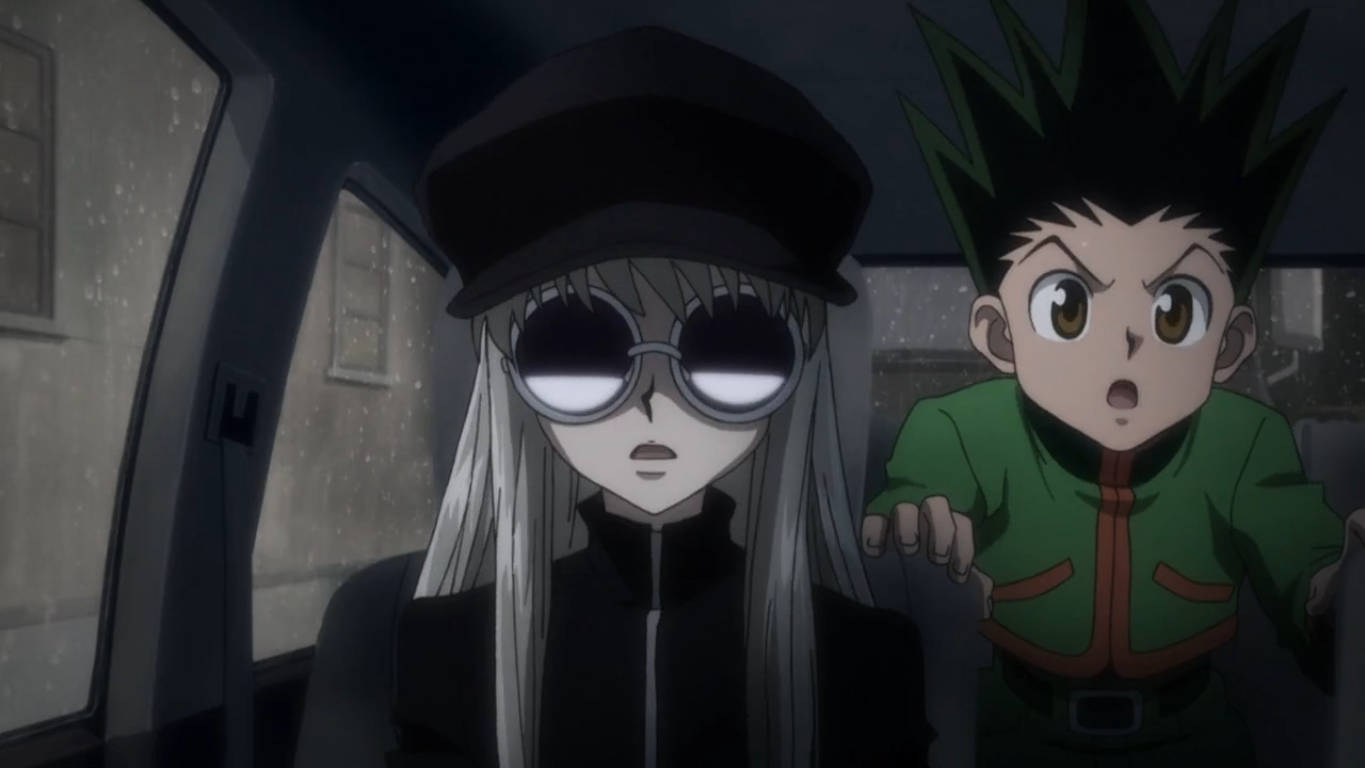
Sure, friendship is great....until you find out about your "friend's" secret cross-dressing fetish (Gon even looks a bit shocked, there)
The final element of Kurapika’s character arc is simply him coming to terms with the path that he has chosen to walk down. The instance in which we truly get to see this is when Kurapika pierces Uvo with his chain. This is of course after he tried brutally beating an answer out of the guy to divulge the whereabouts of the rest of his gang (to Kurapika’s own self-disgust). When that doesn’t work, he essentially gives him an ultimatum of “answer me or die,” to which Uvo tells him to go to hell with a smile, as the sharp end of the chain pierces through his heart, leaving him to crumble at Kurapika’s feet. For being Kurapika’s first real kill in the series, the guy is obviously a bit distraught, but it’s not merely jut because he took a life.
Once again, think a bit closer about what just happened here. He essentially took a member of the Phantom Troupe down for good. What’s to be upset about? Maybe because it’s not quite what he expected. Kurapika clearly wanted, and fully expected, a total scumbag who would bend to his every whim and submit to him before dying. Instead Uvo dies gracelessly, yet somehow manages to seem more dignified than Kurapika himself in doing so. In response, Kurapika manages to sum up his feelings in just a look (without needless exposition to explain how he’s feeling; I’m looking at you Chimera Ant arc). Here’s how I interpret it: it’s at this moment that Kurapika realizes something. Basically, he really derived no pleasure from killing this guy, and taking down the rest of the troupe will make him feel no different. There is no satisfaction to be had. Kurapika is doing dirty work. He also realizes that he feels that he needs to do this stuff, as if it’s the last duty he has to his fallen people. So at this point, he’s reached the point of no return, and must keep going on anyways, and he takes that moment to come to terms with the fact that, while he doesn’t regret what he has done or what he will soon do, he is also going to find every moment of this affair to be painstakingly miserable. That, more than anything else, is what I consider to be the true tragedy of his character.

And to add to that tragedy, he's got clean-up duty as well
For all of the time that Togashi spends fleshing out Kurapika, he does inevitably have to scale back on almost everyone else in terms of protagonists. Don’t be mistaken: Gon, Killua, and Leorio, along with the other supporting characters have a ton of bearing on the plot, but from a character stand-point there is much more going on in terms of how they affect Kurapika’s development rather than their own. This may be viewed as a flaw, but personally I find it to be a wise writing-decision on Togashi’s part. Choosing to focus most of his time on a single character rather than multiple personalities manages to create some interesting drama without hampering the pacing of the story. Gon and company do get a sizable chunk of this arc to themselves, but a good portion of it has to do with building up to a future arc rather than progressing these individuals as characters. That said, it should be noted that both Gon and Killua had ongoing character arcs that were somewhat put on hold here, yet they each receive some development along the way. With Gon, we start to get an idea of both the positive and negative aspects of his overly-optimistic attitude towards most scenarios, and with Killua we get a deeper sense of how his history as a cold-blooded assassin has left him rather desensitized to the type of carnage he witnesses here.

Meanwhile, the most likable character on the show gets stuck watching everyone else do more interesting stuff, because fuck you, Togashi...
Well, all of that stuff is fine and dandy regarding the so-called “heroes” of our story, but what about the other side of the coin? After all, I did say that this arc comprises two-sides, so in Part III (the final part) of this feature, I will be delving into just what makes the villains tick, and then bring everything together to sum up my overall feelings on this piece of fiction.




